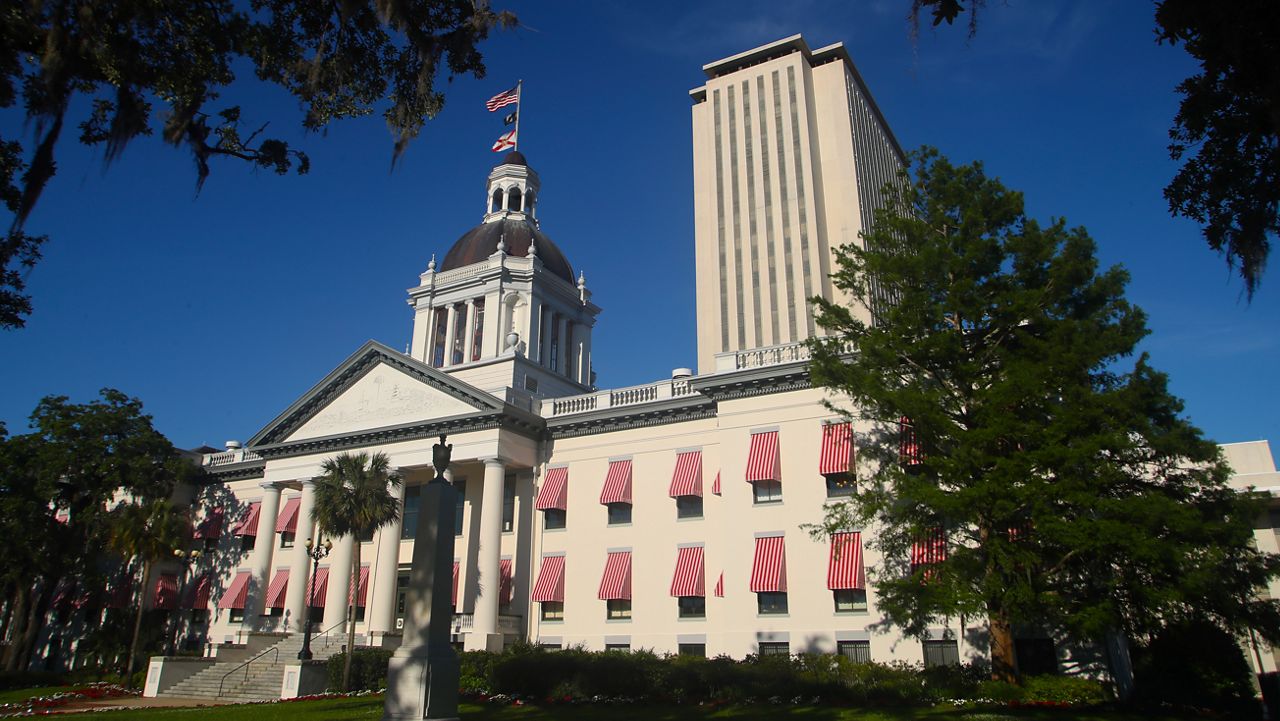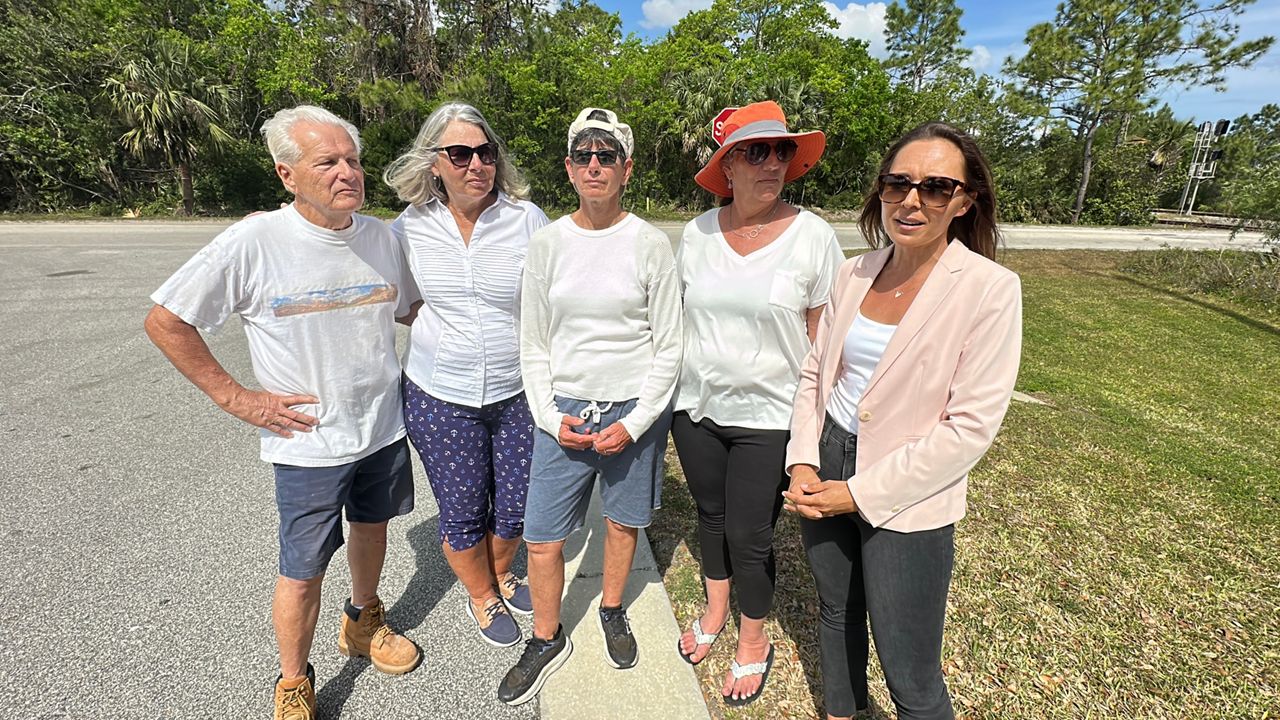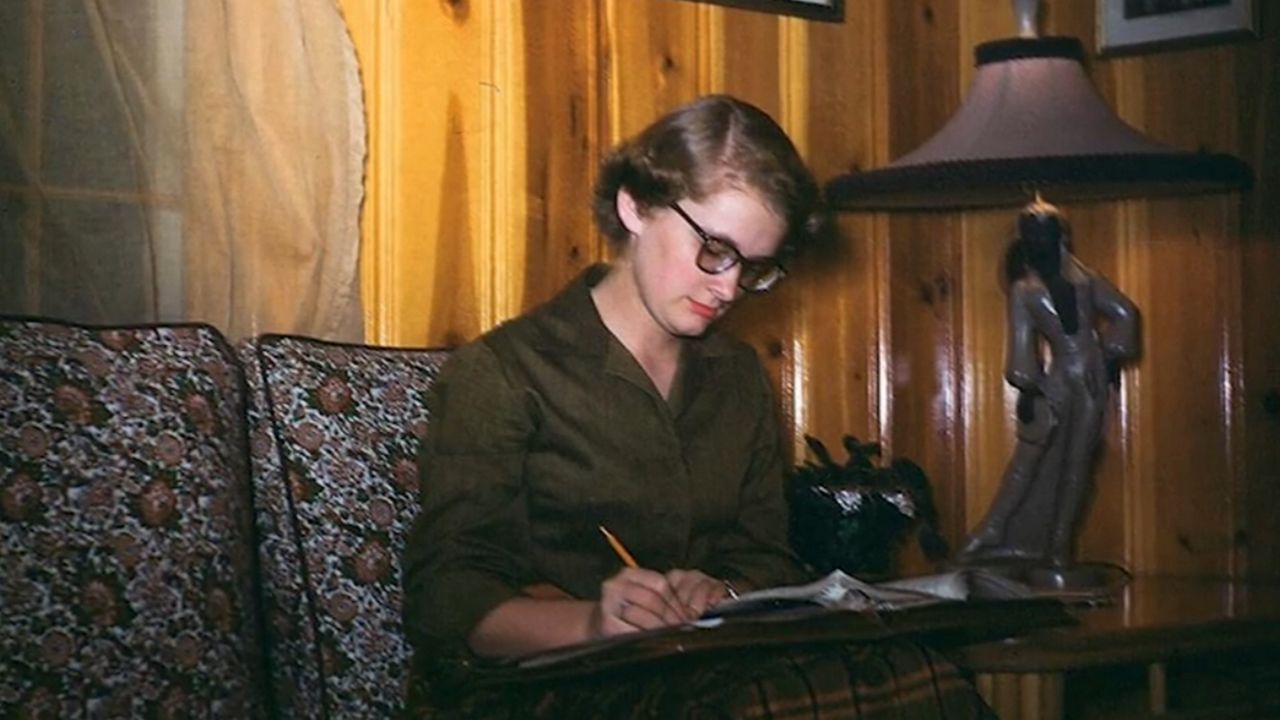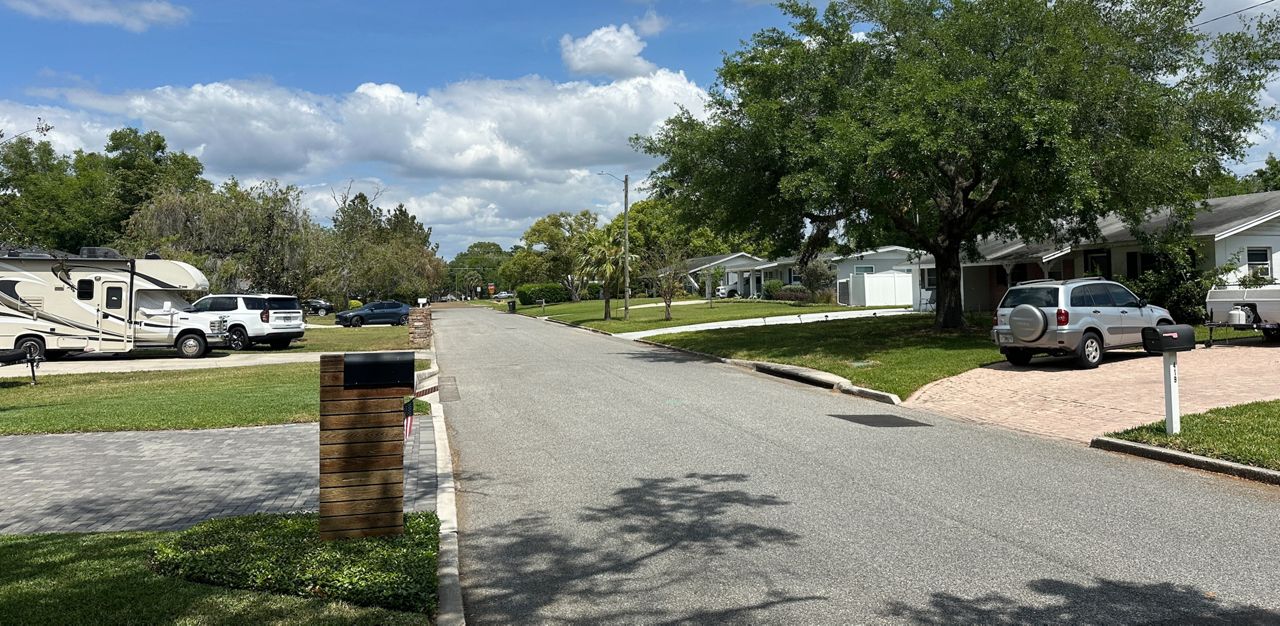ORLANDO, Fla. — In between homeroom and his home lab, one Central Florida teen is determined to make an impact on a global crisis: the decline of the honeybee.
“They know I’m here to help them,” said Atreya Manaswi, carefully examining a wooden frame as he pulls it from a hive.
On it, honey glitters in the sun as dozens of black and yellow bees bump into one another.
“This hive was just actually split, so it’s still growing,” Manaswi said.
When Manaswi was just 12 years old, a fishing trip with a friend and his grandfather changed his life, but the reason had nothing to do with peril, adventure — or even fish.
He learned from that friend’s grandfather that honeybees were in danger, and in that moment, he decided he would do something about it.
Now Manaswi, clad in a white beekeeping suit, moves cautiously, but with precision. Behind him, a shiny smoker pipes smoke into the air.
“I’m really passionate about this issue," he said. "I’ve worked over the past five years to try and create something beekeepers can use to manage this pest in their hives.”
His five years of work have been arduous: He taught himself coding and 3D printing, and, at times, spent 18- to 20-hour days in front of his computer.
The high school junior created a beer blend in his first three years of research, developing what he described as an “eco-friendly, low-cost alternative” to chemicals on the market. The blend, he explained, goes inside a trap and is placed inside a hive to ward off pests which wreak havoc on bee populations.
“I spend a lot of time behind the computer, so they’re always trying to pull me out of my room and go out places and do things,” he said of his friends. "But I really enjoy what I do, and it’s fun for me.”
On the weekends, the teen’s mother would drive him from the family’s home in Windermere to a lab hours away to conduct research.
“Almost every Saturday or Sunday, it’s Bartow, a place that’s an hour-and-a-half drive, one way," Sonia Oberoi said. "So, we would be in the car with all the traps and ingredients. Bees are a very important part of our life now … it is our moral responsibility and obligation to the world as well, so I’m doing my little bit.”
But, Manaswi’s work has paid off so far.
He’s picked up first-place prizes from competitions like the Orange County Science Fair to the national Gloria Barron Prize for Young Heroes. This month, Manaswi placed first in his division at the State Science Fair in Lakeland.
But, Manaswi is still only a teen, who said he loves watching movies and playing guitar, as his mom whips up his favorite Indian dishes in the family’s Windermere home: “My mom is my biggest supporter. She’ll always be giving me food to eat, making sure I’m on task.” @MyNews13/4 pic.twitter.com/tPQXfsoJyy
— Julie Gargotta (@juliegargotta) April 12, 2024
Oberoi swells with pride as she talks about her son, including when she mentions an elite invitation Manaswi accepted: speaking at the U.N. Convention on Climate Change.
“I was ecstatic," she said. "There is no word less than that for a kid of his age being able to do that."
And Manaswi’s work in the honeybee field has also rubbed off on someone else in the home: his 14-year-old brother, Aakash, who also placed first in his respective division at the latest competition for his own bee-saving treatment.
“It’s amazing. It’s going to bring some solutions to the problems that are existing,” Oberoi said of her sons’ research. “Whichever works out to be in the long-term better for commercial beekeeping, so be it.”
Now, as Manaswi considers colleges and eyes his next goal — placing at an international science competition in Los Angeles in May — he’s reflecting on the work that got him to this spot.
He credits some of his success to hours spent in a Gainesville lab with his former U.S. Department of Agriculture researcher mentors, Dr. Charles Stuhl and Maritza Romero.
“I’m hoping the work I’m doing … can make a difference someday,” Manaswi said. “My advice to any young scientist or aspiring student out there would be to find a problem in their community and do something about it.”









